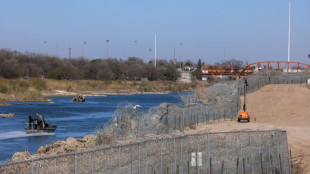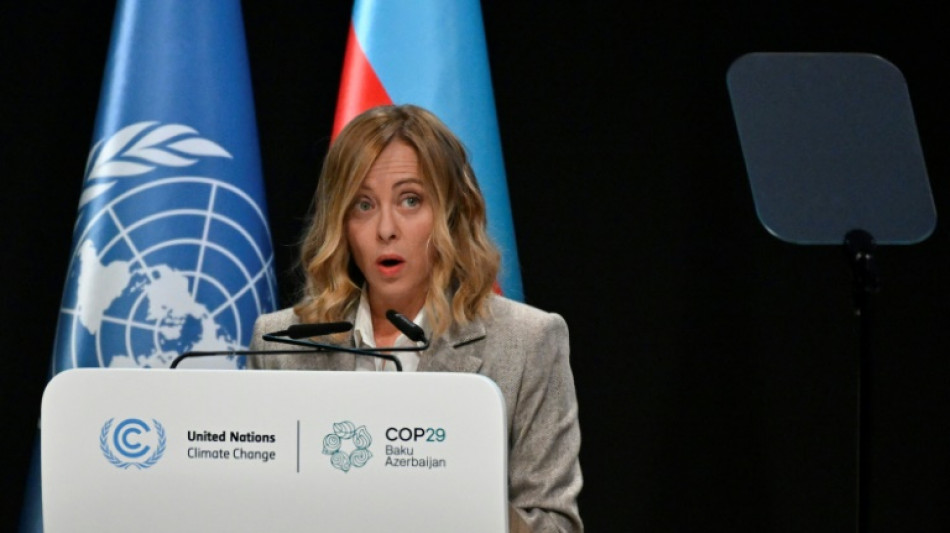
-
 Altomare hangs on to tie defending champ Korda at LPGA Match Play
Altomare hangs on to tie defending champ Korda at LPGA Match Play
-
Paraguay gold rush leaves tea producers bitter
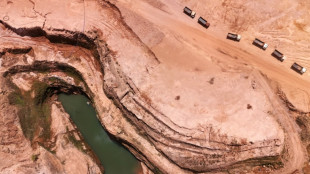
-
 Health concerns swirl as Bolivian city drowns in rubbish
Health concerns swirl as Bolivian city drowns in rubbish
-
Syria says deadly Israeli strikes a 'blatant violation'

-
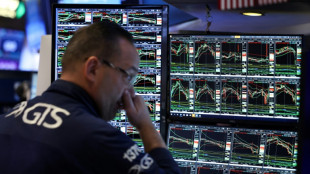 Financial markets tumble after Trump tariff announcement
Financial markets tumble after Trump tariff announcement
-
Starbucks faces new hot spill lawsuits weeks after $50mn ruling

-
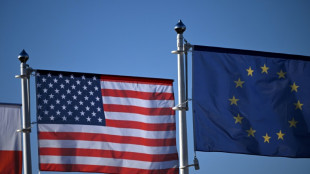 Europe riled, but plans cool-headed response to Trump's tariffs
Europe riled, but plans cool-headed response to Trump's tariffs
-
'Shenmue' voted most influential video game ever in UK poll

-
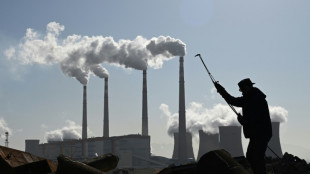 New coal capacity hit 20-year low in 2024: report
New coal capacity hit 20-year low in 2024: report
-
Revealed: Why monkeys are better at yodelling than humans

-
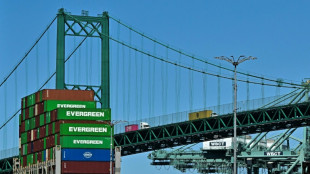 Key details on Trump's market-shaking tariffs
Key details on Trump's market-shaking tariffs
-
'A little tough love': Top quotes from Trump tariff talk
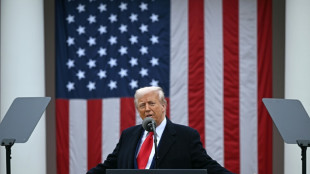
-
 US business groups voice dismay at Trump's new tariffs
US business groups voice dismay at Trump's new tariffs
-
Grealish dedicates Man City goal to late brother

-
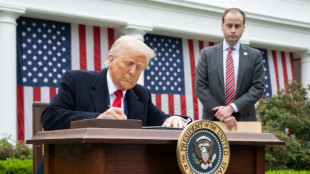 US tariffs take aim everywhere, including uninhabited islands
US tariffs take aim everywhere, including uninhabited islands
-
Trump sparks trade war with sweeping global tariffs
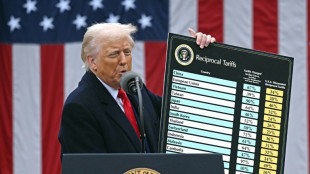
-
 Israeli strikes hit Damascus, central Syria; monitor says 4 dead
Israeli strikes hit Damascus, central Syria; monitor says 4 dead
-
Slot 'hates' offside rule that gave Liverpool win over Everton

-
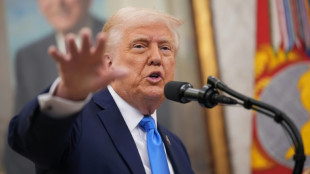 US stocks end up, but volatility ahead after latest Trump tariffs
US stocks end up, but volatility ahead after latest Trump tariffs
-
Barca oust Atletico to set up Clasico Copa del Rey final

-
 Mourinho grabs Galatasaray coach's face after losing Istanbul derby
Mourinho grabs Galatasaray coach's face after losing Istanbul derby
-
Grealish strikes early as Man City move up to fourth in Premier League

-
 Reims edge out fourth-tier Cannes to set up PSG French Cup final
Reims edge out fourth-tier Cannes to set up PSG French Cup final
-
Liverpool beat Everton as title looms, Man City win without Haaland

-
 Jota wins bad-tempered derby as Liverpool move 12 points clear
Jota wins bad-tempered derby as Liverpool move 12 points clear
-
Inter and Milan level in derby Italian Cup semi

-
 Stuttgart beat Leipzig to reach German Cup final
Stuttgart beat Leipzig to reach German Cup final
-
Trump unveils sweeping global tariffs
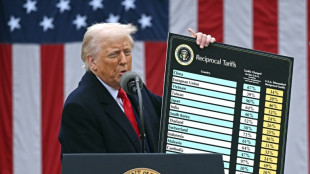
-
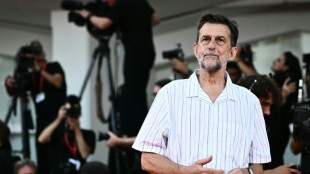 Italian director Nanni Moretti in hospital after heart attack: media
Italian director Nanni Moretti in hospital after heart attack: media
-
LIV Golf stars playing at Doral with Masters on their minds

-
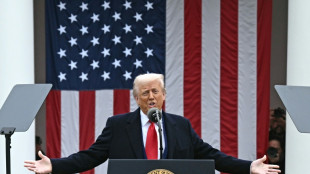 Trump unveils sweeping 'Liberation Day' tariffs
Trump unveils sweeping 'Liberation Day' tariffs
-
Most deadly 2024 hurricane names retired from use: UN agency

-
 Boeing chief reports progress to Senate panel after 'serious missteps'
Boeing chief reports progress to Senate panel after 'serious missteps'
-
Is Musk's political career descending to Earth?
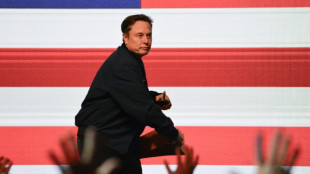
-
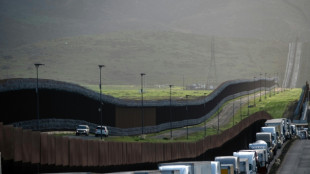 On Mexico-US border, Trump's 'Liberation Day' brings fears for future
On Mexico-US border, Trump's 'Liberation Day' brings fears for future
-
Starbucks faces new hot spill lawsuit weeks after $50mn ruling

-
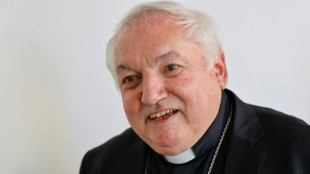 Ally of Pope Francis elected France's top bishop
Ally of Pope Francis elected France's top bishop
-
'Determined' Buttler leads Gujarat to IPL win over Bengaluru

-
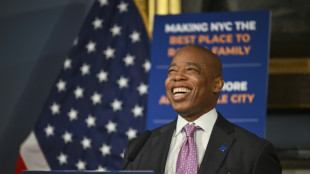 US judge dismisses corruption case against New York mayor
US judge dismisses corruption case against New York mayor
-
Left-wing party pulls ahead in Greenland municipal elections
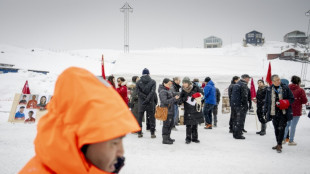
-
 Blistering Buttler leads Gujarat to IPL win over Bengaluru
Blistering Buttler leads Gujarat to IPL win over Bengaluru
-
Tesla sales slump as pressure piles on Musk
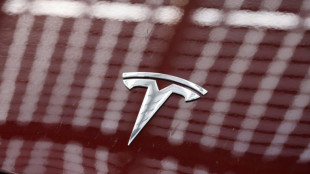
-
 Amazon makes last-minute bid for TikTok: report
Amazon makes last-minute bid for TikTok: report
-
Canada Conservative leader warns Trump could break future trade deal
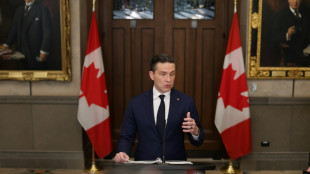
-
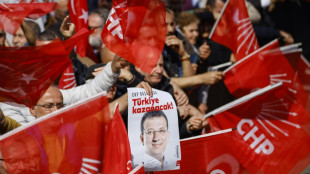 British band Muse cancels planned Istanbul gig
British band Muse cancels planned Istanbul gig
-
'I'll be back' vows Haaland after injury blow

-
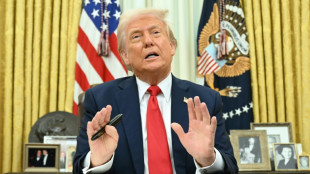 Trump to unveil 'Liberation Day' tariffs as world braces
Trump to unveil 'Liberation Day' tariffs as world braces
-
New coach Edwards adamant England can win women's cricket World Cup
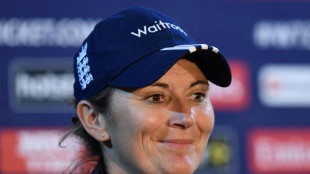
-
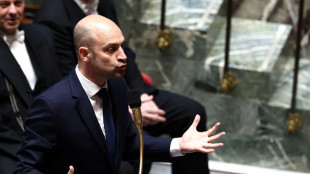 Military confrontation 'almost inevitable' if Iran nuclear talks fail: French FM
Military confrontation 'almost inevitable' if Iran nuclear talks fail: French FM
-
US stocks advance ahead of looming Trump tariffs
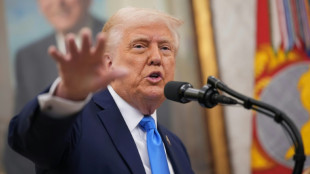

Stark warning on emissions as leaders split on climate goals at COP29
Global leaders offered competing views on how to tackle climate change at UN-led talks Wednesday as a new report warned the world must reach carbon neutrality much sooner than planned.
Planet-warming carbon dioxide emissions from oil, gas and coal rose to a new record high this year, according to preliminary research from an international network of scientists at the Global Carbon Project.
The report came as leaders gathered in Azerbaijan for COP29 climate talks aimed at reaching a deal on boosting funding to help poorer nations adapt to climate shocks and transition to cleaner energy.
The research found that to keep the Paris agreement's ambitious goal of limiting warming to 1.5 degrees Celsius in sight, the world would now need to reach net-zero CO2 emissions by the late 2030s -- instead of 2050.
The warning also follows concerns about the future of the fight against climate change following the election of Donald Trump.
Trump, who has vowed to again pull the United States out of the Paris agreement, named his head of the Environmental Protection Agency Tuesday with a mandate to slash pollution regulations.
Some leaders in Baku defended fossil fuels during two days of speeches while others from countries plagued by climate disasters warned that they were running out of time.
- 'Slower' path -
Italian Prime Minister Giorgia Meloni called for a "realistic global outlook" on Wednesday, saying that world population growth will boost energy consumption demand.
"It is equally a priority that decarbonisation takes into consideration our production and social system's sustainability," she said.
"We must protect nature, with man at its core. An approach that is too ideological and not pragmatic on this matter risks taking us off the road to success," the far-right leader said.
"Currently there is no single alternative to fossil fuel supply."
Greek Prime Minister Kyriakos Mitsotakis called for a "smart" Green Deal, the European Union's ambitious climate plan which aims to make the bloc carbon-neutral by 2050.
"We cannot drive ourselves into industrial oblivion," the conservative leader said.
"We need to ask hard questions about a path that goes very fast, at the expense of our competitiveness, and a path that goes somewhat slower, but allows our industry to adapt and to thrive," he said.
Their views contrasted with leaders from countries beset by climate catastrophes and rising sea levels.
"Tuvalu sincerely hopes that this COP's concluding decisions will deliver a clear signal that the world is promptly phasing out fossil fuel," said the Pacific island's Prime Minister Feleti Penitala Teo.
"For Tuvalu and similarly placed countries, there is simply no time to waste," he said.
- Money fight -
As leaders spoke, negotiators released a fresh draft of a deal with a raft of options to raise funding for poorer countries, while leaving unresolved sticking points that have long delayed an agreement.
Most developing countries favour an annual commitment from wealthy countries of at least $1.3 trillion, according to the latest draft of the long-sought climate finance pact.
This figure is more than 10 times the $100 billion annually that a small pool of developed countries -- among them the US, the EU and Japan -- currently pay.
Some donors are reluctant to promise large new amounts of public money from their budgets at a time when they face economic and political pressure at home.
The prime minister of the hurricane-vulnerable Bahamas, Philip Davis, said small island nations have spent 18 times more on debt repayment than they have received in climate finance.
"The world has found the ability to finance wars, the ability to mobilise against pandemics," Davis said.
"Yet when it comes to addressing the most profound crisis of our time, the very survival of nations, where is that same ability?"
Y.Nakamura--AMWN



